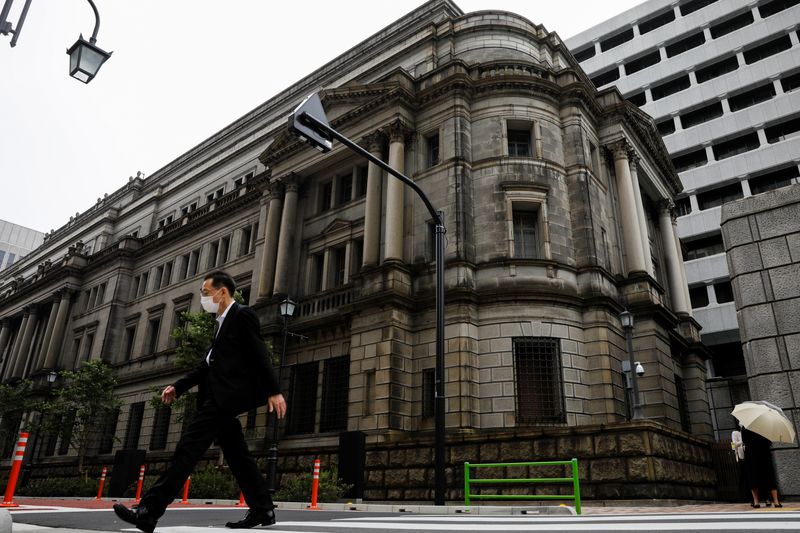By Leika Kihara
TOKYO (Reuters) - Bank of Japan policymakers debated the risk of the country sliding back into deflation but stopped short of advocating stronger steps to prevent firms from going insolvent due to the coronavirus pandemic, minutes of their June meeting showed.
With the impact of COVID-19 likely to last for a prolonged period, more companies could face the risk of insolvency even if they received immediate liquidity support, some on the BOJ's nine-member board were quoted as saying.
But those who spoke out on the matter said the BOJ ought to be cautious about directly injecting capital to save struggling firms, suggesting such action should be the preserve of the government.
"A few members said the BOJ's role was to provide liquidity, and that it was important for the BOJ to cooperate with the government while clarifying the respective roles," according to the minutes released on Monday.
After easing monetary policy in March and April, the BOJ kept policy settings unchanged at the June 15-16 meeting and maintained its view the economy will gradually recover from the damage caused by the pandemic.
But many board members remained gloomy on Japan's recovery prospects as the impact from the outbreak deepened, the minutes showed.
"The impact of the pandemic was broadening to companies of all size and sectors. If corporate bankruptcies and closures increased, there was a risk Japan could slip back into deflation," a few board members were quoted as saying.
Many members also said economic activity could be "severely curtailed" if there was a second wave of infections, the minutes showed.

Japan lifted nationwide state of emergency measures in late May but has seen a renewed spike in infections in its capital Tokyo, stoking fears of a second wave that could hit an already weakened economy. Japan has reported over 25,000 cases, including nearly 1,000 deaths.